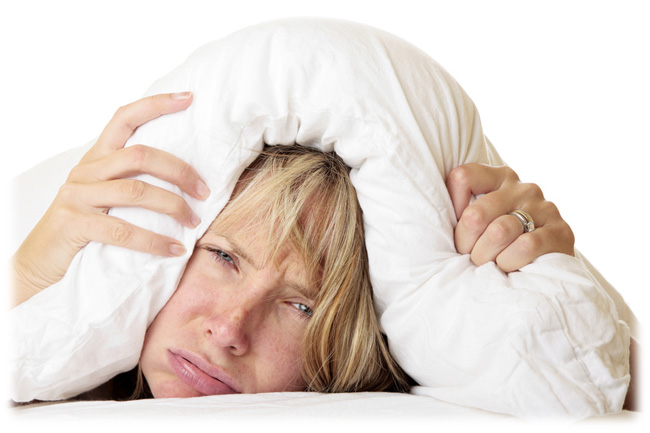Are you one of these who often find it difficult to sleep even when you are tired or wake up in the middle of the night and feel anxious? If you are experiencing any one of these above situations then chances are that you might be suffering from a medical condition called Insomnia.
 It is a very common medical condition that particularly means inability to catch the significant amount of sleep needed by person to get up the next morning all refreshed and charged up. The amount of hours needed for sleep differs from person to person therefore insomnia is better defined as the quality of sleep one has and how does one feel after sleep rather than focusing on the hours slept. Even if you sleep nine hours a day and get up the next day feeling all tired then also you might be suffering from Insomnia.
It is a very common medical condition that particularly means inability to catch the significant amount of sleep needed by person to get up the next morning all refreshed and charged up. The amount of hours needed for sleep differs from person to person therefore insomnia is better defined as the quality of sleep one has and how does one feel after sleep rather than focusing on the hours slept. Even if you sleep nine hours a day and get up the next day feeling all tired then also you might be suffering from Insomnia.
Types:
Insomnia can be broadly classified into two categories and they are primary and secondary insomnia.
1) Primary Insomnia: It basically refers to a condition in which a person is not able to catch enough sleep but this condition is not in any way related to any other medical or health problems or conditions.
2) Secondary Insomnia: In this condition the person is not able to sleep because of something else like health conditions or problems, some medications which he or she is taking, or even because of substances they are consuming like alcohol, cigarettes.
Insomnia can also be categorized on the basis of the duration of the condition and its frequency of occurrence. If the condition sustains for a short period then it is categorized as acute Insomnia and if it lasts for a long term then it can be classified as chronic Insomnia.
Symptoms:
The detection of the disease at an early stage betters the chances of an early recovery for the patient. Some symptoms of the disease are listed below which will help in early detection of the disease.
1) Facing difficulty in sleeping despite of feeling tired.
2) Waking suddenly in the middle of night feeling all anxious.
3) Sweating excessively when sleeping.
4) Relying on external substances like alcohol and sleeping pills to fall asleep.
5) Decreasing Concentration power.
Causes:
After knowing about the symptoms we must know what actually causes the medical condition. It can be caused due to a variety of psychological and health problems. The most common cause of insomnia is stress or worry. It is like a trigger for insomnia. Psychological problems like depression, chronic stress, anxiety and bipolar disorder etc. can lead to sleeping problems. Medical problems like asthma, kidney diseases, chronic pain, acid reflux and cancer etc. can also lead to Insomnia. Some other causes of insomnia can be side effects due to medication, consumption of alcohol and caffeine or any kind of pain caused by physical illness.
Diagnosis:
If one feels that he or she might be suffering insomnia then one must not take chances by taking it lightly, one should immediately consult a doctor. Insomnia diagnosis usually takes place in three stages. In the first stage the doctor physically examines the patient, in the second stage the doctor goes through the medical history of the patient and in the third stage the doctor goes through the patients sleep history. The patients are advised to keep a sleep diary for two or three weeks so that the doctor can know about their sleep history. They are further told to jot down their sleep patterns and their feeling after waking up. The doctor may also talk to the patient’s bed partner to know about his or her quality and quantity of sleep.
Treatments:
No treatment is required in the case of acute Insomnia. But if your Insomnia makes it difficult for you to carry on your daily work then your doctor may prescribe you sleeping pills for a short period of time. Sleeping pills should only be consumed without a doctor’s prescription as they often lead to some undesirable effects. For the treatment of chronic Insomnia the patient must go through a behavior therapy. The behavior therapy helps the patient to forget old behavior and initiate new behavior which supports sleep. On the other hand doing light exercises and engaging in hobbies also help to cure insomnia.
Prevention:
Insomnia can be prevented by decreasing nicotine, alcohol and caffeine intake. By decreasing their intake we indirectly cut down on our stress levels.
Home Remedies:
The following home remedies can also help to keep Insomnia at bay.
1) Don’t take a nap during the day.
2) A person shouldn’t judge his sleep.
3) Avoid consuming caffeine, alcohol and nicotine.
4) Go to bed only when you feel sleepy.
5) Avoid watching television in bedroom and limit your activities to sex and sleep in the bedroom.
6) Avoid doing hard exercises just before going to sleep.
Warnings / Precautions:
By taking certain precautions this disease can be kept at bay in the first place. One should avoid having caffeine especially later in the day. A sleep diary should be kept which should be daily updated. A serious and strict routine of sleep should be maintained. Precautionary measures should be taken during the consumption of insomnia medications as they their overdose may lead to death.
Questions to Ask your Doctor:
When visiting a doctor one should be clear in mind about what all questions he or she wants to ask the doctor. The following questions must be asked by the patients suffering from insomnia.
Q-1) is my sleep problem due to a psychological or medical problem?
Q-2) Will making simple changes in my sleeping patterns help me?
Q-3) Will taking sleep medication be helpful?
Q-4) how long should I continue taking medicines?
Special Note:
One must keep in mind that insomnia is just a symptom and not a serious disease. One should try to find and correct the cause behind it. Insomnia doesn’t have any relation to the number of hours you sleep. It deals with the quality of sleep that one has. One shouldn’t neglect Insomnia as any other minor disease and a professional help must be taken during chronic Insomnia.


 Cart : 0 items - $0.00
Cart : 0 items - $0.00










